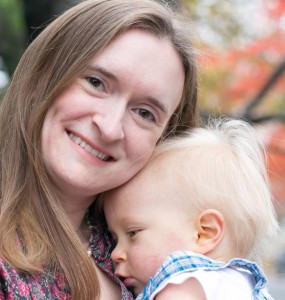7/31/2014
·Enable high contrast reading
My Palliative Care Story Made It To Capitol Hill

On July 23, 2014, I joined a group of 60 advocates representing 23 different organizations, including the Courageous Parents Network and the American Cancer Society Cancer Action Network, on Capital Hill to advocate for palliative care. Between us, we had 64 meetings with Senators, Representatives, and their staff to educate them about palliative care. More specifically we wanted them to know about two bills currently circulating that would train additional providers and teach patients about the benefits of palliative care.
My trail to Capitol Hill began just over a year ago, when my son, Ethan, was diagnosed with Tay-Sachs Disease. He was only ten months old. We sat in the white, sterile hospital room as the doctors told us there was no treatment and no cure and that Ethan would never see his fourth birthday. They connected us with a physiatrist who prescribed equipment that would, in his words, “help for when he starts crawling,” which we knew would never happen. We went home that very sad day with instructions to come back in two months.
It was easy to feel forgotten during those long two months.
At the second appointment, the doctors suggested hospice and I thought to myself, “What! My son is NOT dying in the next six months.” But other moms of Tay-Sachs children suggested palliative or hospice care, so I tentatively gave the hospice and palliative care outpatient provider a phone call. Where we live, pediatric palliative care is provided through the few hospice agencies that offer it as well as in the major hospital. (Note: palliative care is much more than hospice care — it can begin at the point of diagnosis and is an extra layer of support over the patient’s entire care continuum, not only for end-of-life.) When I called, they assured me that Ethan’s care could begin immediately. They explained that palliative care is comfort care. It relieves pain, symptoms, and stress caused by serious illnesses and is designed to improve a patient’s quality of life. So we signed up.
A nurse came to the house once a week to check on Ethan. At the end of each check-up, we had a teleconference with his palliative care doctor at Children’s National Medical Center. Ethan and our family ultimately had a primary nurse, two backup nurses, two overnight nurses for a period of time, a lung specialist, a massage therapist (for Ethan of course), a social worker, a grief counselor, a chaplain, and two volunteers—all provided by hospice. Hospice coordinated with his neurologist and his palliative care doctor, which allowed everyone to focus on Ethan. Their continuous care kept him out of the emergency room and we were able to identify and manage his discomforts as they arose, rather than relying on pain medications after the fact.
And yet, as wonderful as everyone was for Ethan, there is still a need for better training and greater availability. Hospice and palliative care providers across the country have a shortage of pediatric expertise. When Ethan became sick and needed a feeding tube, his hospice nurse wasn’t able to insert it. The only other nurse with experience in pediatric feeding tubes had an emergency with her pediatric patient and wasn’t available. We spent a harrowing night hoping Ethan would make it to the next morning so we could take him to the inpatient hospice facility and have the tube put in.
Ultimately, our story ends the same way so many do. After a week, Ethan’s little body rejected the feeding tube and he passed away three weeks later in January 2014. He was 19 months old. As sad as his passing has made me, when I reflect on that period of time, I remember being incredibly inspired by the people who cared for Ethan and who care for the seriously and terminally ill. They gave Ethan the best thing parents in our situation could hope for: a peaceful passing.
And so, as I stepped up the hallowed stairs of our legislators, I did so knowing that we couldn’t have lived without palliative care for our sweet baby Ethan. I stepped up for every mother and father in America who is told that their baby will die, who shouldn’t have to shoulder that burden alone. I stepped up for every one of us who is graced with parents and grandparents who inevitably face the same end-of-life decisions. It is something that we will all struggle with, and when we do, we will be grateful that there are people out there willing and available to help.
Thank you to all our palliative care providers! And thank you to Senator Udall and to the truly exceptional staff members in the offices of Senators Bennet, Scott, Isakson, and Grassley, and Representative DeGette who took time on July 23, 2014 to learn about palliative care!



